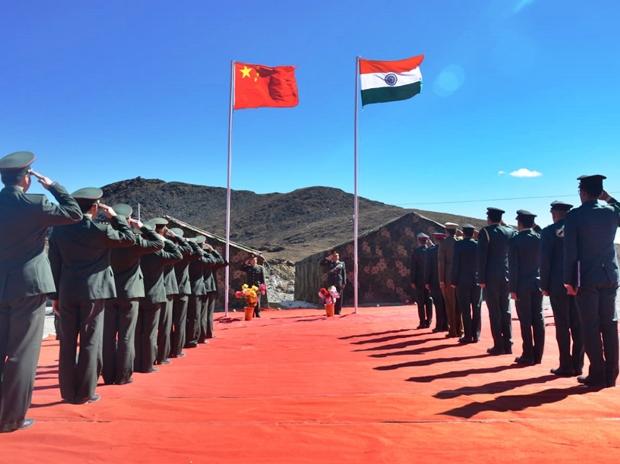This article is written by Mayank Barman, pursuing a Diploma in Cyber Law, FinTech Regulations and Technology Contracts from LawSikho.com.
Table of Contents
Introduction
Sovereign countries across the world are bound by trade obligations set forth by the World Trade Organisation (“WTO”) and the bilateral agreements signed between them. International Trade is important in developing friendly relations between the countries, aids developing countries in prospering from the resources imported and/or exported to and from the developed countries and keeps the global economy in fine-tune. However, at times when the situation between two countries worsen diplomatically, militarily and/or strategically, it often leads to a massive impact on the trade between the two nations.
India bans 59 Chinese Apps amidst the Galwan Valley Faceoff against China
The recent stand between the Indian Army and the People’s Liberation Army at the Galway Valley has sparked outrage internally in the country with many people calling for a complete boycott of Chinese imports into India as a mark of solidarity and as a respect to India’s sovereignty. Such a spark burst for the second time against China, with the first time being when China refused to use its veto power in the United Nations Security Council in naming Mashood Azhar as a global terrorist.
With tensions running high on the economic, diplomatic and political front as both the nations meet eyeball to eyeball at the border and all the high-level talks between the commanders, it is patriotic to call for a nationwide for Chinese Products, given the fact that India both has domestic alternatives as well as International alternatives.
But, the question that does arise is whether two foreign sovereign nations bound by the obligations under the WTO, of which one of the pillars is “non-discrimination” can potentially ban one and another? On June 29, 2020, the Ministry of Information and Technology, Government of India banned 59 Chinese Applications by invoking its power under Section 69A of the Information Technology Act, 2000 (“IT Act”) read with the relevant Procedure and Safeguards for Blocking for Access of Information by Public) Rules, 2009 citing that the said banned application was prejudicial to the sovereignty and integrity of India, the security of the State, defence and public order.
Section 69A of the IT Act, 2000 reads as:
Power to issue directions for blocking for public access of any information through any computer resource;
(1) Where the Central Government or any of its officer specially authorised by it in this behalf is satisfied that it is necessary or expedient so to do, in the interest of sovereignty and integrity of India, defence of India, the security of the State, friendly relations with foreign states or public order or for preventing incitement to the commission of any cognizable offence relating to above, it may subject to the provisions of sub-section (2) for reasons to be recorded in writing, by order, direct any agency of the Government or intermediary to block for access by the public or cause to be blocked for access by the public any information generated, transmitted, received, stored or hosted in any computer resource.
(2) The procedure and safeguards subject to which such blocking for access by the public may be carried out shall be such as may be prescribed.
(3) The intermediary who fails to comply with the direction issued under sub-section (1) shall be punished with imprisonment for a term which may extend to seven years and shall also be liable to fine.
Though the Government of India also cited “privacy” and “data breach” as two of the primary concerns while banning the applications, the same is beyond the scope of Section 69A of the IT Act. Critics further say that a straightjacket ban on multiple apps without an objective and verifiable data of how much data breach of Indian users has actually occurred via these Chinese apps clearly violates the purpose of the law. Regardless of anything, the Government of India exercised its power under domestic legislation and the chances of that being challenged and declared nullified seem highly unlikely given the situation between the two nations.

Will a complete ban on Chinese Products lead to a violation of the principle of Non-Discrimination principle under the WTO Regime?
The situation becomes far more complex and interesting when it comes to the legal standoff under International Law. Both India and China are parties to the World Trade Organisation with the former being a member since 1995 and the latter joining six years later in 2001. The WTO is built on core principles such as the “Most Favoured Nation (MFN)” which states that the countries cannot discriminate against each other’s trading partners. The MFN is also a mandatory requirement under Article 2 of the General Agreement on Trade of Tariffs (“GATT”) and Article 4 of the Agreement on Trade-Related Aspects of Intellectual Property Rights (“TRIPS Agreement”), although a few exceptions under strict conditions is permitted. Further, the principle of national treatment which envisages equal treatment of local and foreign goods (at least after they have entered the market) is also a mandatory requirement under the WTO regime.
The Indian Railways’ Dedicated Freight Corridor Corporation of India Limited approached the World Bank to terminate a contract worth INR 500 crores which were awarded to the Beijing National Railway Group for signalling and telecommunication work in the Kanpur-Deen Dayal Upadhyay stretch in Uttar Pradesh. The contract was cancelled on account of non-performance citing 20% completion in the last four years. Similarly, BSNL and MTNL, 4G up-gradation tender was cancelled on the request of the Department of Telecommunications (DoT), Government of India after it had instructed the telecom networks to not use Chinese equipment for the same, and thus advocating the boost of India’s manufacturing sector.
Now that such restrictions and cancellations offer a big blow to Chinese investments in India, it is important to understand whether these decisions of the Government of India and any such decision in the future will be permissible under the scanner of the International Trade obligations.
Security Exception under GATT & a look at the history
The MFN under Article 1 and National Treatment under Article 3 of the GATT apply to all the member states barring a few exceptions provided under the GATT itself. One of the exceptions which are relevant in instant India – China row is Article XXI of the GATT. Article XXI of the GATT provides for “Security Exceptions” and opens with the words “Nothing in this Agreement shall” and allows the State to not furnish any information for protecting its security interests and also allows the State to take “any action” with respect to the protection of its essential security interests, in relation to:
(i) fissionable materials or the materials from which they are derived;
(ii) traffic in arms, ammunition and implements of war and to such traffic in other goods and materials as is carried on directly or indirectly for the purpose of supplying a military establishment;
(iii) time of war or another emergency in international relations.
Further, Article XXI provides that any contracting party can take any action in pursuance of its obligations under the United Nations Charter for the maintenance of international peace and security.
Article XXI permits the country to “self-judge” as to what steps are necessary to maintain its security interests but at the same time be mindful of its obligations of upholding the GATT. Nevertheless, a State has an absolute right to trigger Article XXI in order to maintain security interests. However, the test of Article XXI lies in the fact that the Member States cannot use the exceptions under Article XXI as a means to shy away from the obligations laid down in the GATT and also mere political or economic differences between the Member States is not enough to constitute an emergency in International relations under Article XXI.
In 2014, Russia took over a part of eastern Ukraine known as the Crimean Peninsula and other portions in a series of military conflicts. In this process, Russia banned traffic between Ukraine, Kazakhstan and the Kyrgyz Republic, of which the trade route was through Russia itself. Ukraine called Russia’s move as violative of Article V, Article X of the GATT and Russia’s Protocol of Accession to the WTO. Russia defended the ban by pleading that the move was necessary to protect its essential security interests provided under Article XXI(b)(iii) of the GATT. Five years later in 2019, the United States of America (“US”) also invoked Article XXI of the GATT to justify its tariffs imposed on steel and aluminium which led to several countries including Turkey, Switzerland, India, Mexico, China, the European Union among others to file a suit against the US at the WTO.
With respect to Article XXI (b) (ii) which “provides for preventing any contracting party from taking any action which it considers necessary for the protection of its essential security interests relating to the traffic in arms, ammunition and implements of war and to such traffic in other goods and materials as is carried on directly or indirectly for the purpose of supplying a military establishment,” India has a strong military establishment along with the Indo-China order which was beefed up after the Galwan clash with even tech surveillance been used to monitor the situation at the border. Hence, in order to supply more military establishments, India can take the steps which it deems “necessary” that are otherwise limited by the provisions of the GATT. In the Preparatory Committee of the Geneva Session, it was discussed that if a Member who exports commodities is satisfied that the purpose of such a transaction is to supply a military establishment, immediately or ultimately, the language of Article XXI (b) (ii) shall cover the same.
Article XXI (b) (iii) which provides for preventing any contracting party from taking any action which it considers necessary for the protection of its essential security interests at a time of war or another emergency in international relations, makes India’s argument stronger against China. Though, as of this moment, war hasn’t broken out between the two nations, the standoff between the armed forces of the nations across the LAC is wide enough to fall within “other emergency in international relations,” and thus permits India as the sole-judge to take measures for protecting its essential security interests.
Conclusion
Therefore, given the current situation between India and China across the LAC, India can definitely cut its trade ties with China in compliant with the GATT Agreement by adhering to Article XXI (b) (ii) and Article XXI (b) (iii) by stressing on the fact that a country is the “self-judge” of its own national and security interests. The situation between the countries is not merely a political dispute as to the recent standoff between the Armed Forces of the two nations at the LAC, would prima facie suggest. The economic benefits/losses remain to be seen of such a move in the future and shall be subject to another debate.
LawSikho has created a telegram group for exchanging legal knowledge, referrals and various opportunities. You can click on this link and join:
 Serato DJ Crack 2025Serato DJ PRO Crack
Serato DJ Crack 2025Serato DJ PRO Crack










 Allow notifications
Allow notifications


